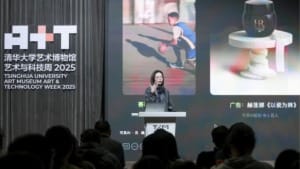Breakthrough for OpenAI as experimental model excels in the International Math Olympiad
OpenAI’s experimental AI model reaches gold medal level at the International Math Olympiad, solving complex problems with human-like reasoning.

OpenAI has announced a significant breakthrough in artificial intelligence, revealing that one of its experimental models achieved gold medal-level performance at the International Math Olympiad (IMO). The milestone highlights the growing ability of AI systems to reason creatively and solve highly complex mathematical problems once thought to be the domain of human intellect alone.
Table Of Content
Experimental AI model performs at an elite level
Alexander Wei, a research scientist at OpenAI specialising in large language models and reasoning, announced the news in a recent post on X (formerly Twitter). According to Wei, the unreleased model was able to solve five out of six problems in the prestigious competition, earning a total score of 35 out of 42 points. This performance would qualify it for a gold medal, placing it among the top 10 percent of human participants at the event.
1/N I’m excited to share that our latest @OpenAI experimental reasoning LLM has achieved a longstanding grand challenge in AI: gold medal-level performance on the world’s most prestigious math competition—the International Math Olympiad (IMO). pic.twitter.com/SG3k6EknaC
— Alexander Wei (@alexwei_) July 19, 2025
The International Math Olympiad is widely regarded as one of the most challenging academic competitions in the world. Each year, countries send up to six of their most talented secondary school students to tackle intricate algebra and pre-calculus problems. These problems often appear straightforward but demand deep understanding and creative problem-solving to achieve full marks. In this year’s competition, only 67 out of 630 participants received gold medals.
Wei described the achievement as a breakthrough in AI’s capability to reason in ways comparable to human mathematicians. “By doing so, we’ve obtained a model that can craft intricate, watertight arguments at the level of human mathematicians,” he stated.
A major step forward for AI in reasoning
Artificial intelligence has long been proficient at handling large datasets and automating repetitive tasks. However, its limitations have become evident when faced with problems that require abstract thinking, logic, and nuanced decision-making. The ability to perform at the level of top IMO contestants represents a notable step toward overcoming those limitations.
Unlike traditional AI applications, IMO problems demand not only computational power but also the ability to understand complex patterns and construct coherent solutions. OpenAI’s achievement demonstrates that AI is beginning to exhibit these higher-level cognitive capabilities.
Despite this progress, OpenAI has no immediate plans to make this advanced model publicly available. Both Wei and OpenAI CEO Sam Altman confirmed that while the model represents a major leap in reasoning and problem-solving, it will not be included in the next version of OpenAI’s flagship product.
GPT-5 won’t include this capability—yet
Although the achievement is expected to influence the future development of OpenAI’s models, the company has clarified that the upcoming GPT-5 release will not include the same level of mathematical reasoning shown by the experimental Olympiad-level model.
Altman echoed this in his comments, noting that the public should not expect such high-level problem-solving abilities in the immediate future. Instead, the capabilities demonstrated at the IMO will likely serve as a foundation for future iterations and further research.
The development adds to growing anticipation around the direction of artificial intelligence and its potential role in fields traditionally reliant on human insight, such as mathematics, science, and philosophy.
















